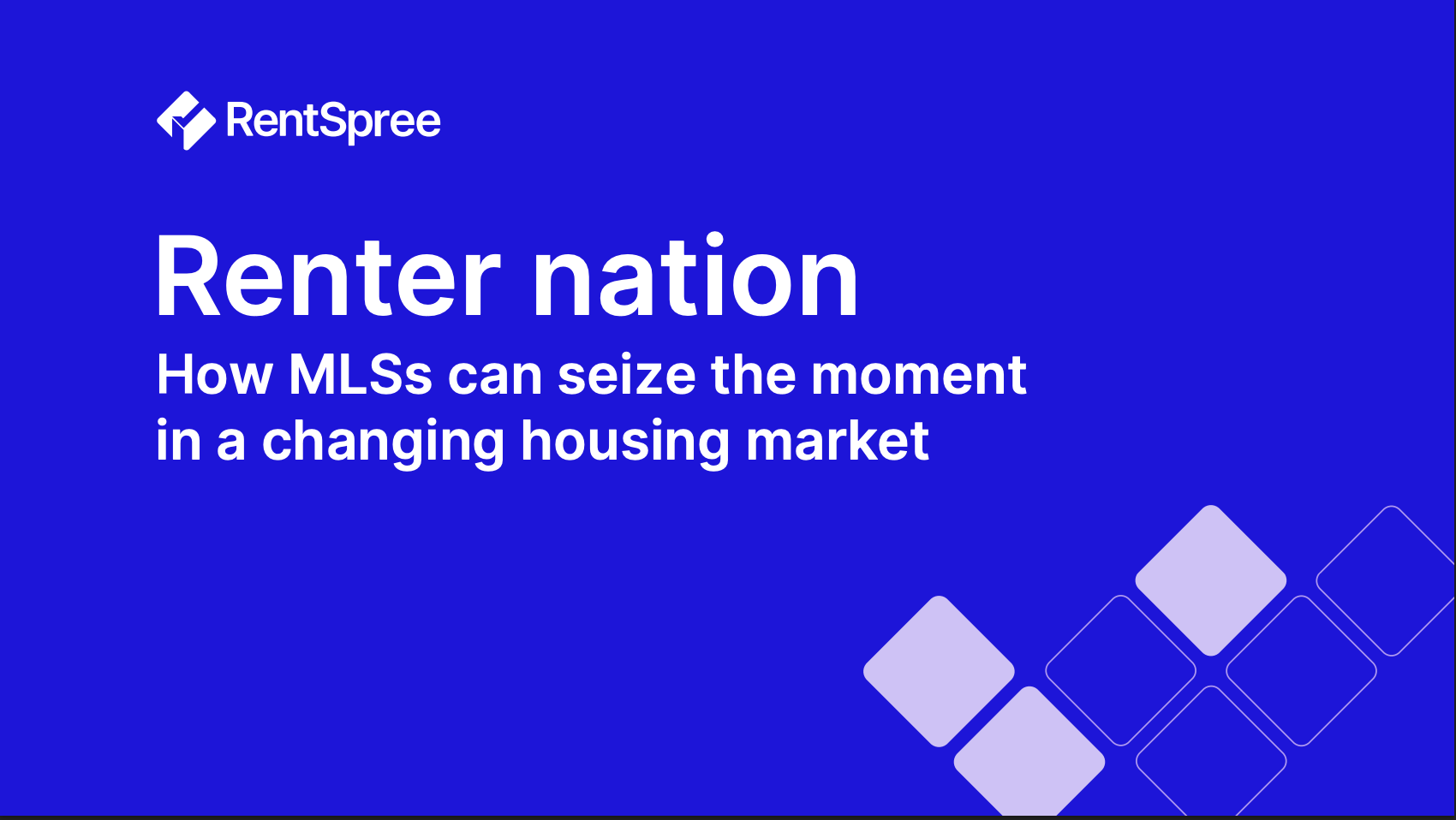Each of the three major credit bureaus, TransUnion, Equifax, and Experian, provide a consolidated report to help you screen prospective tenants. But, which one is the best? We’ve outlined the main differences among these services, plus one tenant screening method that’s fast, easy, secure and free for landlords and rental agents.
Each of the three major credit bureaus, TransUnion, Equifax, and Experian, provide a consolidated report for screening prospective tenants. They may seem to all be equal, but there are differences in a real estate credit check: Equifax vs. TransUnion vs. Experian. We've compiled this content to help you determine the best credit check for agents and landlords.
We’ve outlined the main differences among these services, plus one tenant screening method that’s fast, easy, secure and free for landlords and rental agents.
Why the accuracy of a credit report check matters
When screening prospective tenants, you need reliable and unbiased information to make an informed decision. It would be great if you could simply take an applicant’s word, but it’s a risk with major potential consequences.
To better evaluate applicants, landlords use atenant screening report. This reveals a rental applicant’s financial and rental history. These reports can help landlords and rental agents identify any risks that tenants may pose to the property and potential maintenance issues they may cause. Because so many reports are available, you should know what each report includes and how easy it is to interpret. Then, you can decide which one is right for you.
What is a tenant screening report?
A tenant screening report discloses information for evaluating a potential renter. One part of that is credit and financial history, supplied with an Equifax, TransUnion, or Experian credit report. They include confidential information, including name, address, Social Security number, and date of birth.
Conducting a credit screen includes these results:
- Credit history
- Outstanding debts
- Payment history
- Credit application history
- Financial status
With this information, you can make an assumption about their ability to pay the rent on time every month.
Sometimes, to inform a person’s financial standing, credit bureaus collect information from federal and private student loan providers as well as housing lenders. Reports may also offer a residential score. This consists of rental history, landlord recommendations, verification of tenancy and income, and possibly criminal history and eviction information.
Credit bureaus don’t calculate an individual’s credit score the same way. That’s because not all credit card companies, lenders, and other trade lines of credit report to all three bureaus. TransUnion credit scores, for example, are the product of the VantageScore® 3.0 model. It assesses a tenant’s creditworthiness and is what you want to know as a landlord or property manager.
The VantageScore considers the following factors:
- Payment history (40%)
- Age and type of credit (21%)
- Credit utilization (20%)
- Balances (11%)
- New credit (5%)
- Available credit (3%)
All three credit bureaus use the Fair Isaac Company (FICO®) score model. It weighs different financial information in the calculation:
- Payment history (35%)
- Amounts owed (30%)
- Length of credit history (15%)
- New credit (10%)
- Credit mix (10%)
FICO’s primary use is to evaluate personal loans, mortgages, and car loans. While it’s good for an overall credit picture and overview of a tenant’s payment habits, it is not as precise on creditworthiness as the VantageScore.
How do I request a tenant screening report?
You can request a tenant screening report from the three major credit bureaus: TransUnion, Equifax, and Experian. These companies collect, analyze, and disburse credit-related information. Each of the credit bureaus will ask you to create an account with them. To do this, visit each website to sign up.
During the application process, your prospective tenant will sign a release allowing you to request a tenant screening report. This release must include the prospective tenant’s full name with a middle initial and Social Security number. You can then enter this via your account on the credit bureau's websites. If you use RentSpree to manage the application and tenant screening process, the tenant enters their information and signs the release when they apply.
Comparing the tenant screening reports
When evaluating a real estate credit check from Equifax vs. TransUnion vs. Experian, you’ll want to understand how each works. While tenant screening reports from TransUnion, Equifax, and Experian should include the same personal information, the reports have a few key differences.
Experian credit report
An Experian credit report shows a monthly “Balance History” for accounts closed, those with an outstanding balance, or still open if they fall within a 10-year timeframe from opening.
Experian reports include information indicating a high credit and balance for all reported accounts. For accounts open less than 10 years, the “Balance History” data lists the account opening date. The Experian credit report relays the length of time the account has been open under “Status Details.”
Experian also collects rental payment data from landlords who report this information. This information helps landlords and tenants know when a negative item such as a bankruptcy, eviction, foreclosure, or tax liens will stop affecting their credit scores.
Equifax credit report
An Equifax credit report shows an 81-month credit history for all credit accounts. This is the longest credit history out of all three bureaus. Equifax has two account categories, “Open Accounts” and “Closed Accounts.” This segmentation makes it easier to assess a credit report check quickly.
For closed or paid accounts with insufficient data, you’ll see the following message in the report: “No 81-Month Payment Data available for display.”
An Equifax rental history consists of rental payment data if landlords or property managers report it.
TransUnion credit report
A TransUnion credit reportoffers the most specific employment data of the three credit bureaus in its personal summary. Tenants can update or correct personal data fields, including their current or previous employer’s name, position, and the date hired.
TransUnion reports also list “Satisfactory” and “Unsatisfactory” accounts and include a color-coded payment history to indicate the status of any late payments. The following colors correspond to various status levels:
- Red – 90-120 days late
- Orange – 60 days late
- Yellow – 30 days late
- Green – payments are current
- White – unknown
TransUnion does list some accounts as N/R or “not reported.” These could be items under dispute by the tenant for being inaccurate or misreported. They would be under investigation by TransUnion.
The information from the three credit reporting bureaus is almost identical, with a couple of significant exceptions:
- TransUnion gives landlords an easy-to-understand residential history, which helps you gauge the risk of non-payment or property damage.
- Experian rental history offers a complete view of prospective tenants and predicts future rent-payment information.
- Equifax has an online tenant screening process that is customizable by property.
Overview comparison of the big three
Even though areal estate credit check comparison of Equifax vs. TransUnion vs. Experian has only minor differences, you’ll want to examine further. You may wonder which credit score apartments look at: TransUnion, Equifax, or Experian? That may seem like the best path to take, but you should consider these points in your decision.
Scoring
Equifax uses a credit score range of 280-850. The credit factor weights are:
- Payment history (35%)
- Credit utilization (30%)
- Credit age (15%)
- Different types of credit (10%)
- Number of inquiries (10%)
TransUnion delivers a FICO credit score range of 300-850. They weigh the score in this way:
- Payment history (40%)
- Credit utilization (20%)
- Credit age (21%)
- Recently reported balances (11%)
- New credit (5%)
- Available credit (3%)
Experian calculates a credit score of 300-850. The credit score breakdown is:
- Payment history (35%)
- Credit utilization (30%)
- Credit age (15%)
- Different types of credit (10%)
- Number of inquiries (10%)
Data sources
Each bureau gathers data from lenders, credit card companies, and other financial institutions. Creditors can select which bureaus they want to report to. Some include rental history payments if reported by a landlord.
Services
Each bureau offers additional services such as credit monitoring and identity theft protection. Consumers can also freeze their credit with each bureau, which blocks anyone from pulling their credit report.
Accuracy
Each credit bureau report is just as accurate as the next. Regularly checking credit reports is the best way for consumers to find and dispute errors.
Comparing scores
Comparing scores is an excellent way to evaluate a real estate credit check of Equifax vs. TransUnion vs. Experian. As noted, the score range and weighting are unique for all three. Make a comparable assessment by looking at the same time period.
RentSpree simplifies the tenant screening report process
Running a report from all three credit bureaus (or even one) can involve a lot of work. Credit reports are initiated by the renter and are pulled automatically during the application process. It can be overwhelming at high volumes. RentSpree eases the burden. Credit report checks are free for landlords and rental agents, and our technology streamlines the workflow.
TransUnion powers our fast, accurate, and secure tenant screening service. Where lawful, the report gives you a complete rental, criminal, and credit history, as well as a ResidentScore and eviction report.
RentSpree, in partnership with TransUnion, delivers a comprehensive tenant screening solution, including credit, criminal, and eviction checks. As the highest-rated tenant screening service, RentSpree streamlines the rental process for agents and landlords nationwide, promoting confident decision-making.
If you’re an agent or landlord, you’ll want to use a tenant screening service with the most comprehensive picture of your future tenant as possible. Our solution delivers all the information you need to avoid renting to a risky tenant.
Sign up with RentSpree today to simplify the entire tenant screening process.
Screen and lease with confidence
Find qualified tenants faster than ever with results you can trust.


Related posts
Want to make rentals easier to manage?
Save time on marketing, screening, and payments. Join over 2 million agents, landlords, and renters using RentSpree.





.jpg)

